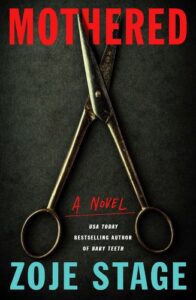Is someone a liar if they tell you something that isn’t true—but they think it’s true? Is a person guilty of misleading you even if the false information they’ve given is a sincere effort to convey something to the best of their understanding?
These are the sorts of questions I think of every time I hear the term “unreliable narrator.” In what ways are they unreliable, and what does it mean that we call them that? Is a confused person unreliable? An inebriated person? A traumatized person? Is a character unreliable because they’re manipulating other characters? Or because they’re manipulating you, the reader? Perhaps the term was originally reserved for characters who were intentionally being untrustworthy, but it seems as if it now applies to all of these scenarios. And as the label has become more ubiquitous in mystery, thriller, and horror novels, I’ve been increasingly thinking that the label often isn’t fair.
I first started questioning the moniker in 2018 when I read the non-fiction book The Trauma Cleaner by Sarah Krasnostein. The subject of the book was referred to as an “unreliable narrator”—but this was about a real person, Sandra Pankhurst, not a character in a genre story. Sandra Pankhurst seemed to have earned this designation because of the extensive turmoil and trauma in her life. But I wasn’t left with the impression of her as a deceptive or manipulative person. Rather, she moved through each stage of her life as best she could, changing as she grew, learning from her difficult life lessons.
Is a person who changes their mind unreliable? Is a character who changes unreliable? I’m sure you see the problem here, because protagonists in fiction are meant to be flawed and are meant to change. So what are we flagging when we declare a character “unreliable”?
Oftentimes it seems to be used as a warning that a protagonist’s version of the truth cannot be trusted. But why is it used so broadly? Devious sociopaths are lumped in with imperfect characters who are simply muddling through with their imperfect knowledge—and from what I’ve observed, the majority of protagonists fall into this latter category. Gone Girl may have romanticized the unreliable narrator—and Gillian Flynn’s novel depicted a truly manipulative character—but I have to wonder now if we have gone awry, as I see a more unfortunate side to this trend.
In addition to its questionable application to people and characters who aren’t intentionally trying to mess with your head, there’s a more serious issue: This has become a word that is usually attached to female-presenting characters, and often in a disparaging way. For me, “unreliable narrator” has become the literary equivalent to how women in the real world are labeled “difficult”—usually for little more than being complex or unafraid to ask for what they want. Labels, in general, can be problematic. But ones that flag (predominantly) women as untrustworthy or suspicious speak to a long and unfortunate history. (Hello, witches?) And it reminds me of another term that’s used against female characters, “unlikeable.”
Most people—and characters—aren’t deliberately trying to mislead everyone around them, and they aren’t trying to make you doubt their integrity. If people behave in complex or unpredictable ways because of their life experience or personality, doesn’t it diminish their humanity to be flagged with a questionable label? Because, by the metric of flaws, mistakes, sorrows, and misadventures, wouldn’t we all be considered unreliable narrators?
At least if you’re a woman?
In regard to my own work, my passion is creating characters who, like real people, are messy and complicated. Sometimes my characters misbehave, and they’re often walking the boundary between good and evil. Some readers may prefer for protagonists to line up neatly in a queue with other Good Guys (or Bad Guys), but many of us get a thrill by seeing the breadth of how a fictitious character can break the rules and get away with it—at least for a while. Most characters in fiction are mucking up their life while simultaneously trying to fix it: that is the essence of the standard character arc.
In short, at the heart of every “unreliable narrator” is an imperfect character on a journey. If that is the accepted definition, then we can freely use this term—for ourselves and our characters. But if “unreliable narrator” in fact has a murkier meaning, then perhaps we need to be more careful about the shorthand we adopt for labeling women and their stories.
***


















